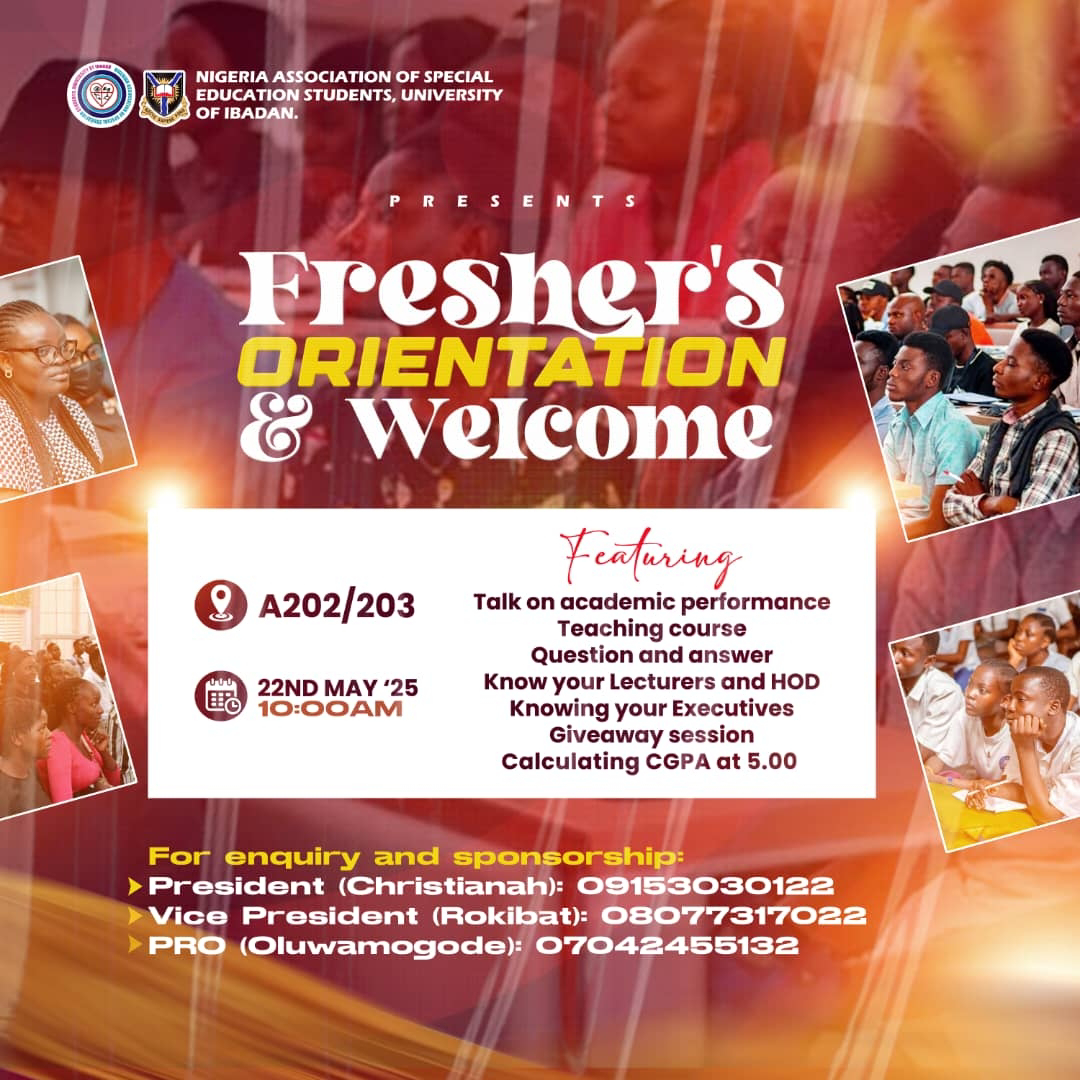WHAT TO KNOW ABOUT PERSONS WITH DISABILITIES
WHAT TO KNOW ABOUT PERSONS WITH DISABILITIES
Idris Busari and Ogunjinmi AliuThe
World Health Organization has developed the International Classification of
Impairments, Disability and Handicaps (ICIDH). WHO (1980) defines:
Impairments: in the context of health experience, as any loss or
abnormality of psychological, physiological or anatomical structure or
function.
Disability: in the context of health experience, as any
restriction or lack (resulting from an impairment) of ability to perform an
activity in the manner or within the range considered normal for a human being.
Handicap: in the context of health experience, as a
disadvantaged for a given individual, resulting from an impairment or
disability that limits or prevents the fulfillment of a role that is (depending
on age, sex, social and cultural factors) for that individual.
Looking
back, our approach to people with disabilities has been less than desirable as
there is a long history of abuse, discrimination and lack of compassion and
understanding. One could also argue that throughout history, there have been
many forms of discrimination of those with disabilities and that included such
perceived disabilities as being a minority race, female poor.
CAUSES OF
DISABILITIES
The
causes of disabilities can be grouped into three (3) namely:
Prenatal causes: These are causes that occur before conception of
birth. It is the first period of human development which lasts from conception
to birth. It is the formative period during which all organs, the physical
features and structures of the body are formed. The unborn baby which is known
as foetus depends solely on the pregnant mother for survival. Therefore any
toxins (poisonous substance) taken by the pregnant mother will cause serious
problems to the unborn child.
Perinatal causes: These are causes that occur during the birth
process. These causes include the following:
- Damage of birth or oxygen deprivation
(lack of oxygen)
- Low birth weight and premature births
- Accident and illness
- Drug abuse and injury to the foetus
inside the uterus (such as a mother being abused), excessive use of
forceps
Post-natal causes: These are causes that occur after the child's birth
or happening during childhood. These includes:
- Environmental characteristics such as
child abuse and neglect
- Environmental poisoning such as the
effect of direct radiation
- Foetal alcohol syndrome (FAS) which
can be a cause as a result from the mother's intake of alcohol during
pregnancy.
WHAT IS SPECIAL
EDUCATION?
Special
Education is designed to facilitate the learning of individuals who, for a wide
variety of reasons, require additional support and adaptive pedagogical methods
in order to participate and meet learning objectives in an educational
programme.
Special
Education aims to provide accommodated education for disabled students such as
learning disabilities, learning difficulties (such as dyslexia and ADHD), Intellectual
Disability, Visual Impairment, Hearing Impairment, communication disorders,
emotional and behavioral disorders, physical disabilities (such as osteogenesis
imperfecta, cerebral palsy, muscular dystrophy, spina bifida etc.
In
an article by Stephen Weisman, he writes: “in the 18th century, having a
disability was a death sentence in some instances.” Weisman goes on to report:
“those who weren’t able to work were often left destitute and without other
options aside from begging. ”They were the subjects of public mockery and
scorn.
In
1800's, the number of people homeless and living on the streets became a social
issue and new policies developed. As described by the Alaskan Department Health
and Social Services, Disability History Exhibit: “Moral Viewpoint – Persons who
lived in extreme poverty, including many with physical or mental disabilities
were often put into poorhouses or almshouses. Such establishments, supported by
public funds, began in the Middle Ages as a means of removing economic outcasts
from society.”
As part of celebrating the International Day of Persons with Disabilities every 3rd of December, the department of Special Education, University of Ibadan will be
organizing a sensitization rally on 5th of December, 2022 on types, causes,
prevention and management of children with disabilities.
CONCLUSION:
There
is great ability in disability. People with disabilities are normal people, do
not add to their problems by discriminating them!!! Everyone is potential to
disability!!!
References:
Alaska
Department of Health & Social Services. (2001) Disability History Exhibit
Retrieved June, 2018 from: http://hss.state.ak.us/gcdse/history/HTML_Content_Main.htm.
Longmore,
Paul, K. & Umansky Lauri.(2001). The New Disability History, American
Perspectives. New York: University Press.
I.
Kalu, (2014). Intellectual Disability and Special Needs Education: Educational
Viewpoints. BWright Integrated Publishers Ltd. Ibadan.
.jpeg)


Comments
Post a Comment